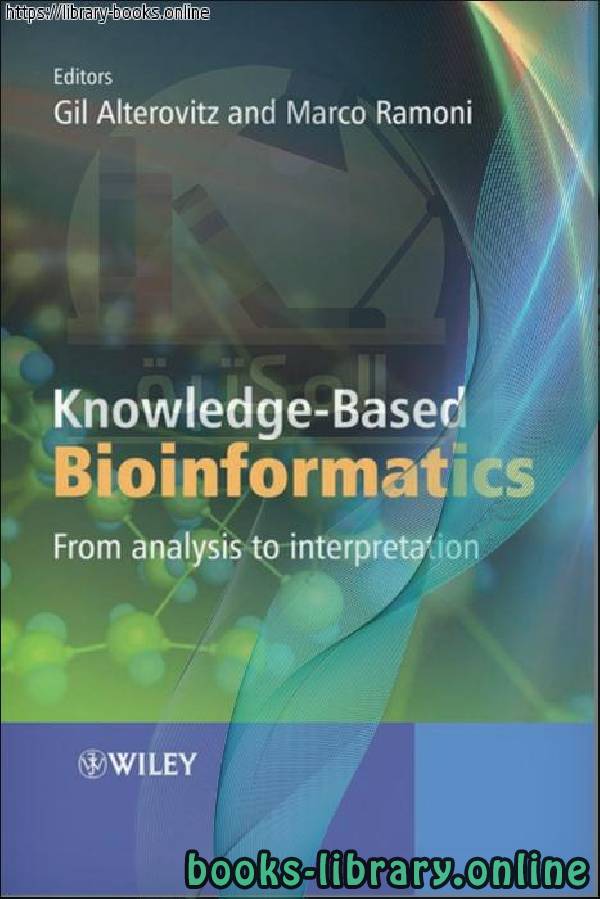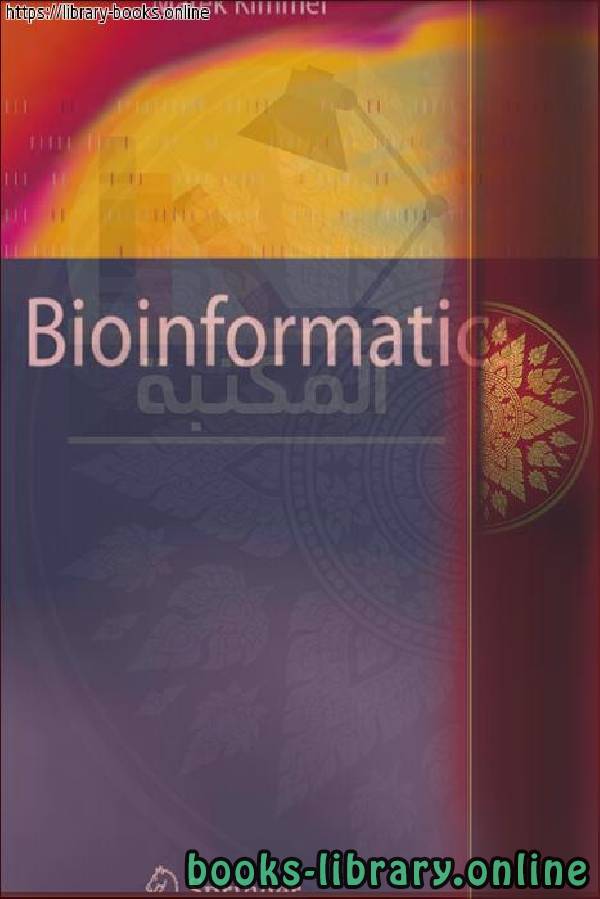كتاب Knowledge-Based Bioinformatics_ From analysis to interpretation
نبذه عن الكتاب: The information generated by progressive biomedical research is increasing rapidly, resulting in a tremendous increase in the biological data resource, including protein and gene databases, model organism databases, annotation databases, biomolecular interaction databases, microarray data, scientific literature data, and much more. The challenge is in representation, integration, analysis and interpretation of the available knowledge and data. The book, Knowledge-Based Bioinformatics: From Analysis to Interpretation, is an endeavor to address the above challenges. The driving force is the need for more background information and broader coverage of recent developments in the field of knowledge-based systems and data-analysis approaches, and their applications to deal with issues that arise from the current increase of biological data in genomic and proteomic research. Also, opportunity exists in utilizing these vast amounts of valuable information for benefit in fitness and disease conditions. Knowledge-Based Bioinformatics: From Analysis to Interpretation, introduces knowledge-driven approaches, methods, and implementation techniques for bioinformatics. The book includes coverage from data-driven Bayesian networks to ontology-based analysis with applications in the field of bioinformatics. It is divided into four sections. The first section provides an overview of knowledgedriven approaches. Chapter 1, Knowledge-based bioinformatics, presents the current status of biomedical research and significance of knowledge-driven approaches in analyzing the data generated. The focus is on current utilization of the approaches and further enhancement required for advancing the biomedical knowledge. Chapter 2, Knowledge-driven approaches to genome-scale analysis, further explains the concept and covers various systems used for supporting biomedical discovery in genome-scale data. It emphasizes the importance of the knowledge-driven approaches for utilizing the existing knowledge, and challenges to overcome in their development and application. Chapter 3, Technologies and best practices for building bio-ontologies, reviews the process of building bio-ontologies, analyzing the benefits and problems of modeling biological knowledge axiomatically, especially with regards to automated reasoning. It also focuses on various knowledge representation languages,Gil Alterovitz, Marco Ramoni - ❰ له مجموعة من الإنجازات والمؤلفات أبرزها ❞ Knowledge-Based Bioinformatics_ From analysis to interpretation ❝ ❱
من Biology Books علم الأحياء - مكتبة الكتب العلمية.

قراءة كتاب Knowledge-Based Bioinformatics_ From analysis to interpretation أونلاين
معلومات عن كتاب Knowledge-Based Bioinformatics_ From analysis to interpretation:
The information generated by progressive biomedical research is increasing
rapidly, resulting in a tremendous increase in the biological data resource, including protein and gene databases, model organism databases, annotation databases,
biomolecular interaction databases, microarray data, scientific literature data,
and much more. The challenge is in representation, integration, analysis and
interpretation of the available knowledge and data. The book, Knowledge-Based
Bioinformatics: From Analysis to Interpretation, is an endeavor to address the
above challenges. The driving force is the need for more background information
and broader coverage of recent developments in the field of knowledge-based
systems and data-analysis approaches, and their applications to deal with issues
that arise from the current increase of biological data in genomic and proteomic
research. Also, opportunity exists in utilizing these vast amounts of valuable
information for benefit in fitness and disease conditions.
Knowledge-Based Bioinformatics: From Analysis to Interpretation, introduces
knowledge-driven approaches, methods, and implementation techniques for
bioinformatics. The book includes coverage from data-driven Bayesian networks
to ontology-based analysis with applications in the field of bioinformatics. It is
divided into four sections. The first section provides an overview of knowledgedriven approaches. Chapter 1, Knowledge-based bioinformatics, presents the
current status of biomedical research and significance of knowledge-driven
approaches in analyzing the data generated. The focus is on current utilization of
the approaches and further enhancement required for advancing the biomedical
knowledge. Chapter 2, Knowledge-driven approaches to genome-scale analysis,
further explains the concept and covers various systems used for supporting
biomedical discovery in genome-scale data. It emphasizes the importance of
the knowledge-driven approaches for utilizing the existing knowledge, and
challenges to overcome in their development and application. Chapter 3,
Technologies and best practices for building bio-ontologies, reviews the process
of building bio-ontologies, analyzing the benefits and problems of modeling
biological knowledge axiomatically, especially with regards to automated
reasoning. It also focuses on various knowledge representation languages,
سنة النشر : 2010م / 1431هـ .
عدد مرات التحميل : 3684 مرّة / مرات.
تم اضافته في : الخميس , 13 فبراير 2020م.
حجم الكتاب عند التحميل : 3.32 .
تعليقات ومناقشات حول الكتاب:
Biologically
Biology is a natural science that is concerned with the study of life, its various forms and its function, how these organisms interact with each other and with the surrounding environment. The word biology in Greek is made up of two words: bio (βίος) meaning life. And loggia (-λογία) means science or study. Biology: the similarity of vegetation and animal cover on the edges of the African and American states, and the existence of the same fossil.
Branches of biology
Biology is an ancient science thousands of years old and modern biology began in the nineteenth century. This science has multiple branches. Among them are:
Anatomy
Botany
Biochemia
Biogeography
Biofisia
Cytology or cell science
Ecology or environmental science
نبذه عن الكتاب:
The information generated by progressive biomedical research is increasing
rapidly, resulting in a tremendous increase in the biological data resource, including protein and gene databases, model organism databases, annotation databases,
biomolecular interaction databases, microarray data, scientific literature data,
and much more. The challenge is in representation, integration, analysis and
interpretation of the available knowledge and data. The book, Knowledge-Based
Bioinformatics: From Analysis to Interpretation, is an endeavor to address the
above challenges. The driving force is the need for more background information
and broader coverage of recent developments in the field of knowledge-based
systems and data-analysis approaches, and their applications to deal with issues
that arise from the current increase of biological data in genomic and proteomic
research. Also, opportunity exists in utilizing these vast amounts of valuable
information for benefit in fitness and disease conditions.
Knowledge-Based Bioinformatics: From Analysis to Interpretation, introduces
knowledge-driven approaches, methods, and implementation techniques for
bioinformatics. The book includes coverage from data-driven Bayesian networks
to ontology-based analysis with applications in the field of bioinformatics. It is
divided into four sections. The first section provides an overview of knowledgedriven approaches. Chapter 1, Knowledge-based bioinformatics, presents the
current status of biomedical research and significance of knowledge-driven
approaches in analyzing the data generated. The focus is on current utilization of
the approaches and further enhancement required for advancing the biomedical
knowledge. Chapter 2, Knowledge-driven approaches to genome-scale analysis,
further explains the concept and covers various systems used for supporting
biomedical discovery in genome-scale data. It emphasizes the importance of
the knowledge-driven approaches for utilizing the existing knowledge, and
challenges to overcome in their development and application. Chapter 3,
Technologies and best practices for building bio-ontologies, reviews the process
of building bio-ontologies, analyzing the benefits and problems of modeling
biological knowledge axiomatically, especially with regards to automated
reasoning. It also focuses on various knowledge representation languages,
Biology
Human biology
Who is the founder of biology?
The importance of biology
Areas of work in the field of biology
Theories of biology
Research on biology for the first grade of secondary school
Human biology
 مهلاً !
مهلاً !قبل تحميل الكتاب .. يجب ان يتوفر لديكم برنامج تشغيل وقراءة ملفات pdf
يمكن تحميلة من هنا 'تحميل البرنامج'

نوع الكتاب : pdf.
اذا اعجبك الكتاب فضلاً اضغط على أعجبني و يمكنك تحميله من هنا:


كتب اخرى في Biology Books
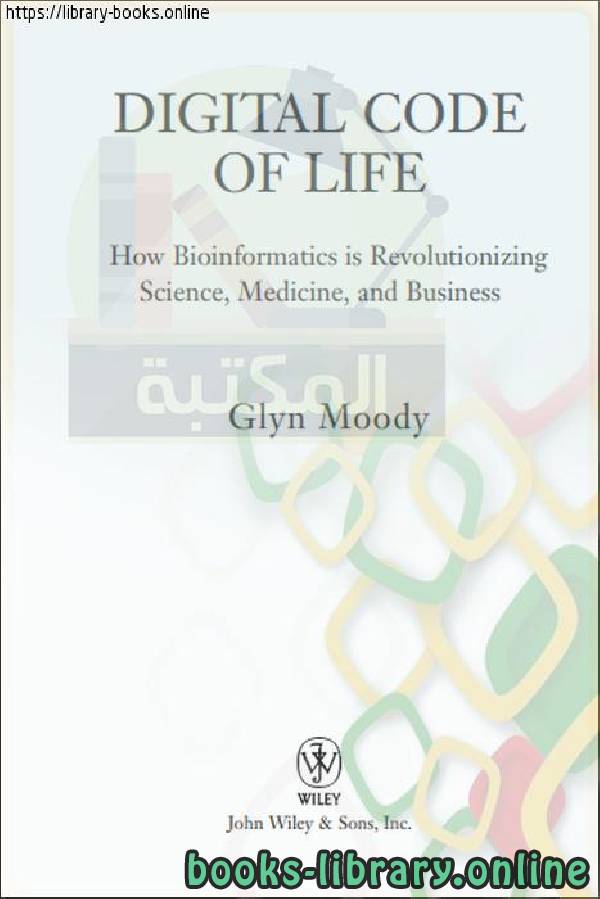
Glyn Moody-Digital Code of Life_ How Bioinformatics is Revolutionizing Science, Medicine, and Business PDF
قراءة و تحميل كتاب Glyn Moody-Digital Code of Life_ How Bioinformatics is Revolutionizing Science, Medicine, and Business PDF مجانا

Noah Hardy-Bioinformatics_ Genomics and Post-Genomics PDF
قراءة و تحميل كتاب Noah Hardy-Bioinformatics_ Genomics and Post-Genomics PDF مجانا
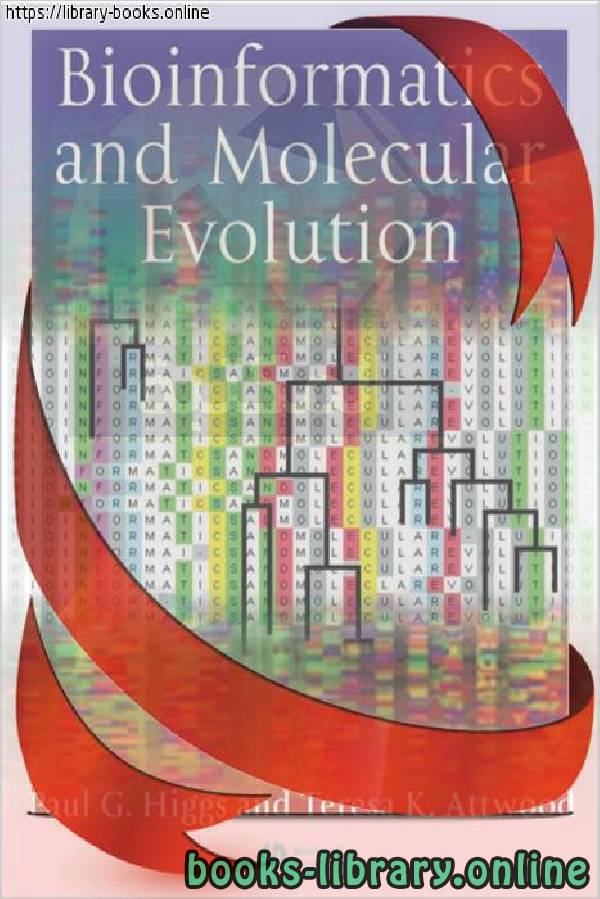
Paul G. Higgs, Teresa K. Attwood-Bioinformatics and Molecular Evolution-Wiley-Blackwell PDF
قراءة و تحميل كتاب Paul G. Higgs, Teresa K. Attwood-Bioinformatics and Molecular Evolution-Wiley-Blackwell PDF مجانا
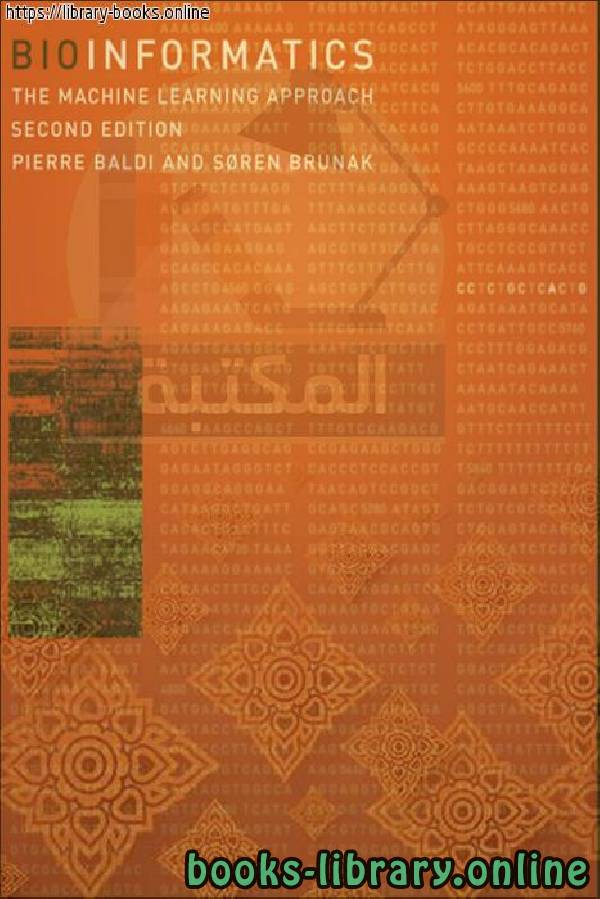
Adaptive Computation and Machine Learning Pierre BaldiBioinformatics the machine learning approach PDF
قراءة و تحميل كتاب Adaptive Computation and Machine Learning Pierre BaldiBioinformatics the machine learning approach PDF مجانا
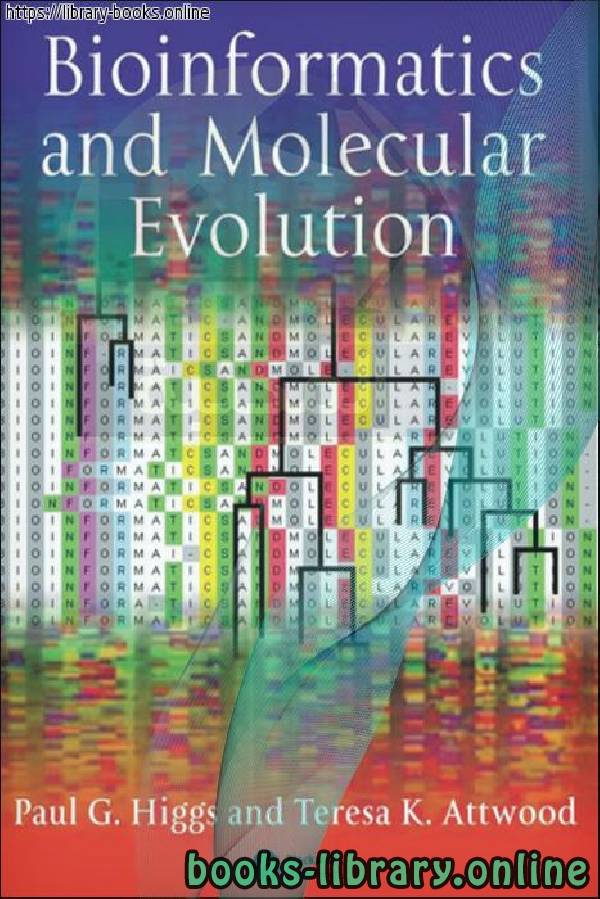
Bioinformatics and Molecular Evolution PDF
قراءة و تحميل كتاب Bioinformatics and Molecular Evolution PDF مجانا

Bioinformatics Genomics and Post-Genomics PDF
قراءة و تحميل كتاب Bioinformatics Genomics and Post-Genomics PDF مجانا
